Did you know that muscle cramps are actually a common occurrence and can happen to anyone at any time?
Muscle cramps usually affect the calf muscles but can also occur in the thighs, upper arms or hands. While there is no one definitive answer as to why muscle cramps happen, there are ways to help reduce your risk of experiencing them.
In this blog post, we’ll discuss what muscle cramps are, what may cause them, and how to prevent them from happening. Keep reading for some helpful tips.
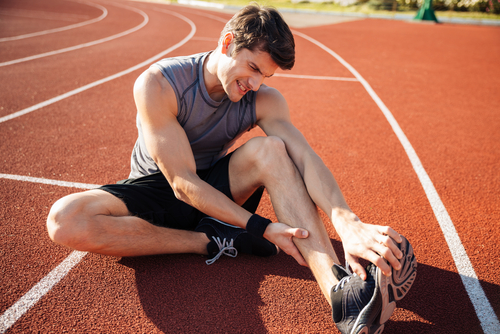
What is a muscle cramp?
A muscle cramp is an involuntary and often painful contraction of a muscle.
It can last anywhere from a few seconds to several minutes and even hours in some cases. Muscle cramps can occur suddenly and without warning. Muscle cramps commonly happen in the calf muscles but can also occur in the thighs, upper arms, and hands. I often get them in the bottoms of my feet.
What causes muscle cramps?
There is no definitive answer as to why muscle cramps happen. However, there are several potential causes, including:
Dehydration: When your body is dehydrated, it doesn’t have enough fluid to work properly. This can lead to muscle cramps.
Electrolyte imbalance: This occurs when the levels of electrolytes (such as sodium and potassium) in your body are not balanced. This can be caused by sweating excessively or vomiting.
Overuse: If you overuse a muscle, it can become tired and start to cramp up. This is often seen in athletes who train too hard without taking proper rest breaks.
Injury: If you have an injury to a muscle, it can cause the muscle to cramp up. This is often seen in people who have a hamstring injury.
Low Sodium intake: a lab-based study found that the severity of cramps experienced by athletes was reduced when they’d taken a sodium drink rather than a placebo drink. In contrast, a 2021 study found that participants who drank water with electrolytes were less likely to develop muscle cramps after a workout.
How to get rid of a muscle cramp
If you do get a muscle cramp, there are several things you can do to help ease the pain and get rid of the cramp:
Stretch the muscle: Gently stretching the cramping muscle can often help relieve the pain.
Massage the muscle: Massaging the muscle can also help to reduce the pain and discomfort.
Apply heat or cold: Applying either heat or cold to the muscle can help to reduce inflammation and pain.
Take a bath: Adding Epsom salt to a warm bath can help to relax the muscles and reduce pain.
Drink fluids: Drinking fluids, particularly water, helps to rehydrate your body and can prevent future cramps from occurring.
Which deficiency causes muscle cramps?
There is no one definitive answer as to which deficiency causes muscle cramps. However, there are several potential causes, including dehydration, electrolyte imbalance, and overuse. If you are experiencing muscle cramps, it is vital to see a doctor to rule out any underlying medical conditions.
How long do muscle cramps last?
Most muscle cramps last for a few seconds to several minutes. However, in some cases, they can last for hours, ouch!
Suppose you are experiencing muscle cramps that last longer than a few minutes. In that case, it is crucial to see a doctor to rule out any underlying medical conditions.
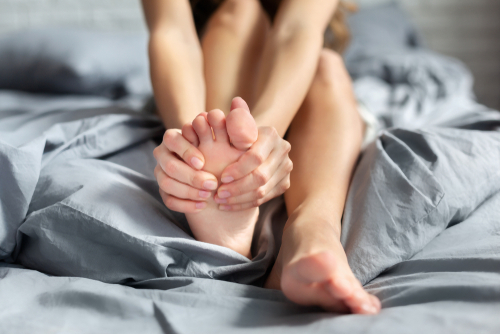
Can muscle cramps cause damage?
There is no evidence that muscle cramps can cause any damage to the muscles or tissues. However, they can be extremely painful and cause discomfort.
Why do muscle cramps occur after heavy exercise?
Cramps can be an unfortunate side effect of exercise, but they’re more often caused by lactic acid buildup. If you experience muscle spasms and tightness in your calf or other body parts during intense workouts with low sweat rates – this may not just be due to cramps.
Lactic Acid is produced when muscles break down glucose for energy; if there isn’t enough oxygen available (i e exercising at high intensity) then some people’s bodies will resort back to pyruvate metabolism, which produces even MORE.
Can supplements help to prevent cramps?
Certain supplements may help. Some research suggests that taking a magnesium supplement may help to prevent muscle cramps. Other nutrients that have been studied for their potential role in preventing muscle cramps include calcium, vitamin E, and vitamin B complex. It is always best to speak with a doctor before starting any supplement regimen.
One magnesium supplement we would recommend is MediCramp. This product is made specifically to fight cramps and uses 300 mg of magnesium along with 30mg of zinc sulfate and a Vitamin B complex that was shown to reduce cramping in 86% of the participants in the study.
Can dehydration cause muscle cramps?
Dehydration is a common cause of muscle cramps. When your body is dehydrated, it doesn’t have enough fluid to allow the muscles to work correctly. This can lead to cramping. Make sure you are getting enough fluids during the day to prevent this from happening. It is recommended that you drink eight glasses of water per day.
Can electrolyte imbalance cause muscle cramps?
An electrolyte imbalance can also cause muscle cramps. This occurs when there is an imbalance of minerals, such as sodium, potassium, and calcium, in the body. This can be caused by dehydration or sweating excessively.
To prevent an electrolyte imbalance, make sure you are getting enough minerals in your diet. You can also take a supplement, such as electrolyte tablets, to prevent this from happening.
Related: 11 Best Electrolyte Supplements on the Market
When should I see a doctor for muscle cramps?
Suppose you are experiencing muscle cramps that are severe or last longer than a few minutes. In that case, it is essential to see a doctor to rule out any underlying medical conditions. If you are unsure whether or not your muscle cramps are serious, it is always best to err on the side of caution and see a doctor.
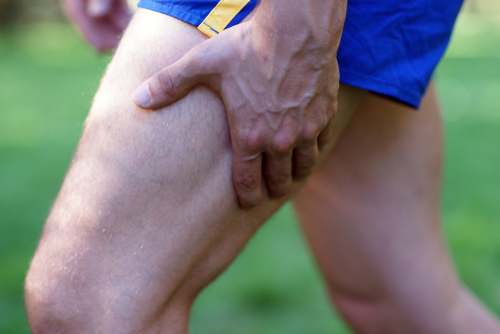
Do muscle cramps mean I am out of shape?
No, not necessarily. Muscle cramps can happen to anyone, even those in excellent shape however, if you find that you are getting muscle cramps more often than usual or they are lasting longer than usual. It may be a sign that you need to increase your activity level or take on some additional stretching exercises.
Do muscle Cramps Burn Calories?
No, muscle cramps do not burn calories. However, they can signify that you are overexerting yourself and need to take a break. If you are getting muscle cramps frequently, it is important to listen to your body and take a break when needed.
How else can I prevent muscle cramps?
There are several things you can do to help prevent muscle cramps:
Stay hydrated: Make sure you’re drinking enough fluids, especially in hot weather or if you’re sweating a lot. Avoid alcohol, which can dehydrate your body.
Eat a balanced diet: Make sure you’re getting enough electrolytes, such as sodium and potassium. You can find these in foods such as bananas, potatoes and dark leafy greens.
Warm up before exercise: A good warm-up will help to increase blood flow to your muscles and reduce the risk of cramping.
Cool down after exercise: Once you’ve finished exercising, cool down gradually to help your muscles recover.
Stretch: Stretching your muscles regularly can help to prevent cramping.
Wear supportive shoes: If you have flat feet or high arches, wear supportive shoes to help prevent foot cramps.
If you experience muscle cramps often, talk to your doctor. They may be able to recommend further treatment options.
Final Thoughts
In conclusion, muscle cramps are a common occurrence that can happen to anyone at any time. There are several potential causes, including dehydration, electrolyte imbalance, overuse and injury. You can also do several things to help prevent them, such as staying hydrated, eating a balanced diet, stretching, and wearing supportive shoes. If you experience muscle cramps often, talk to your doctor for further treatment options.

Ryan is a former college wrestler and lifelong fitness fanatic with over 25 years in the industry. He’s run half marathons, tackled mud runs, placed in body transformation contests, and coached everything from wrestling to girls’ soccer.
Along the way, he’s tested hundreds of supplements and built a deep well of supplement knowledge. His work has appeared in Muscle & Strength, Testosterone Junkie, The Sport Review, and more. Today, he’s the editor-in-chief of this site, still training hard and helping others reach their goals. Connect with him on LinkedIn below.

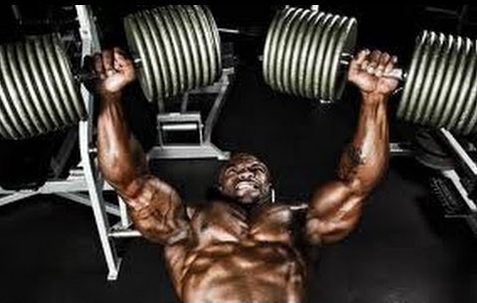

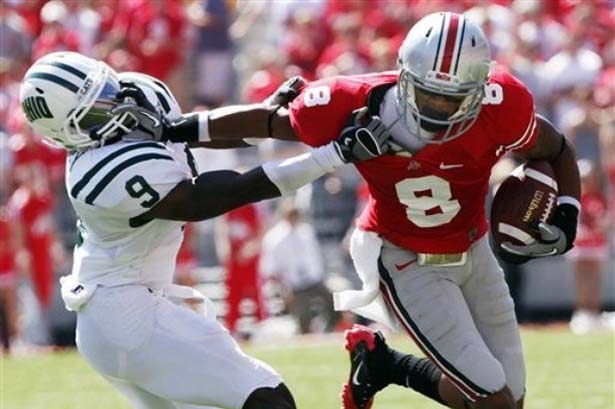


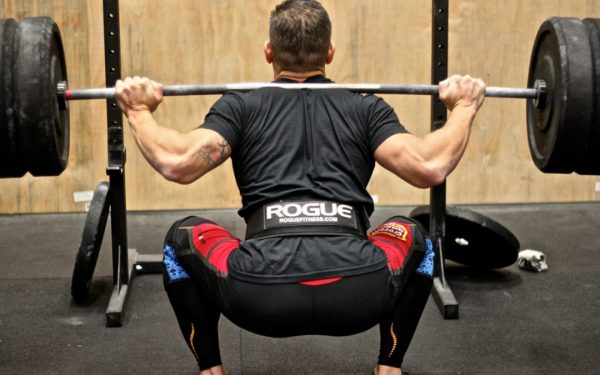


Be the first to comment